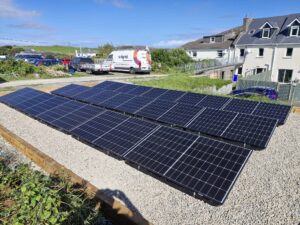The answer to this question is unequivocal “No.” COVID 19, where the specter of a world unprepared for a worldwide pandemic sparked an unexpected but welcome focus on climate change and the commitment to build back “greener and better.” As we said in a previous blog in December 2020, there is no vaccine for climate change, which remains remarkably accurate. With a second global crisis being the Russian invasion of Ukraine, it appears once again that one positive impact of the horrors in Ukraine is a determination to achieve energy security.
In March 2022, the EU Commission released a significant policy statement in the wake of Russia’s invasion of Ukraine, setting out a proposed “REPowerEU” action plan. These measures intend to deal with rising and volatile energy prices and, specifically, the security of supply concerns, given the decision to end dependence on the importation of Russian gas by the end of the decade. While various short-term measures around increased fossil fuel production are required, the REPowerEU proposals clarify the need for a rapid transition to a cleaner and more independent energy supply and the EU’s role in making this happen.
The REPowerEU Action Plan
Is an unmistakable policy signal about the need for a broad alignment between the low carbon agenda and the security of supply agenda. This statement of intent from the EU around the need for low carbon policy measures will accelerate the transition to a low carbon economy globally.
This will likely manifest itself in a few different ways, including:
- Supporting the continued development of solar and wind solutions across the European Union with specific attention to the corporate PPA market and linked to the decarbonization of industries
- Doubling the annual rate of heat pump expansion
- Much more significant focus on energy efficiency measures both in the home and in commercial/industrial real estate
- Decarbonization of industry and introducing policy measures to assist with the commercialization of green hydrogen solutions
- Removing barriers to increased renewable deployment in areas such as permitting and licensing
- Production of renewable gases, such as hydrogen, to increase significantly
To read the full article please click here.








